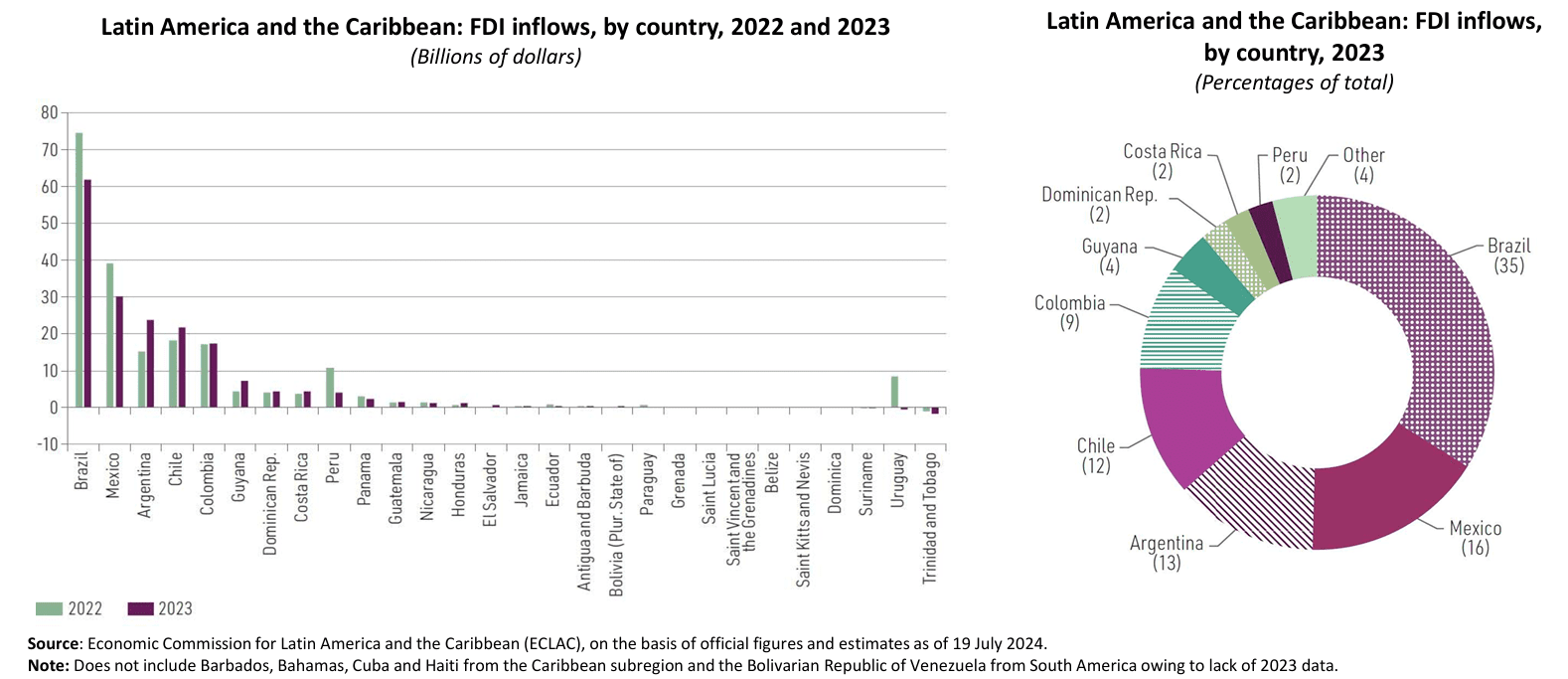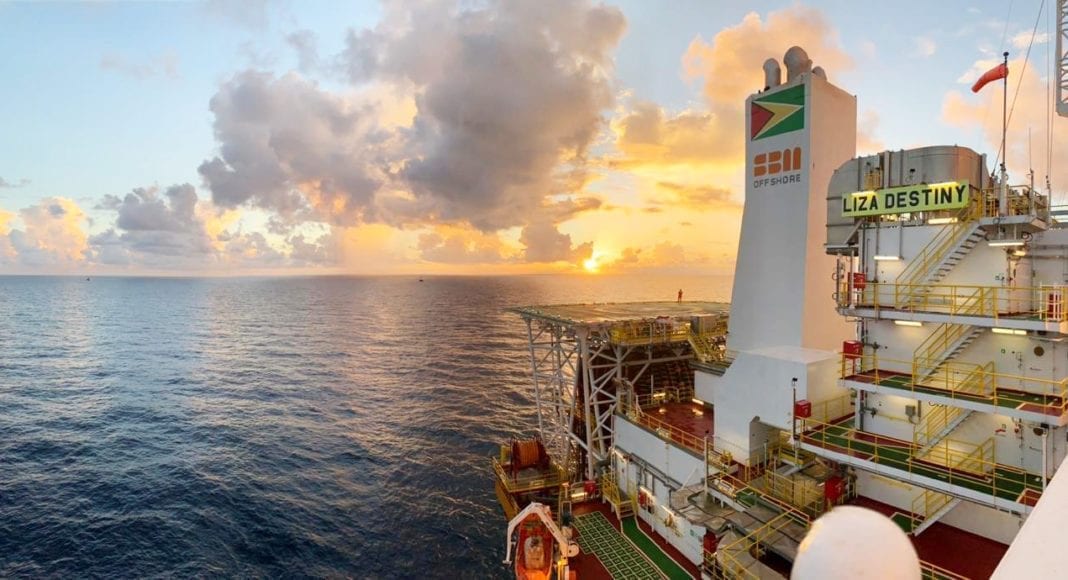Guyana has reported a 64% increase in foreign direct investment (FDI) for 2023, showcasing the nation’s rising influence on the global energy stage.
The 2024 edition of the Economic Commission for Latin America and the Caribbean (ECLAC) “Foreign Direct Investment in Latin America and the Caribbean” highlighted the significant rise in investment inflows to Guyana, positioning it as one of the most attractive destinations for foreign capital in the Caribbean region.
The report attributed this influx primarily to the country’s oil industry, which continues to draw major international players. With the discovery of offshore oil reserves, Guyana has established itself as a key player in the global energy market, attracting billions of dollars in foreign investments.
In 2023 alone, Guyana’s FDI inflows surged by 63.8% to reach US$7.198 billion, outpacing many neighboring countries.

International oil giants, including ExxonMobil, have flocked to Guyana to capitalize on the potential of its oil fields. ExxonMobil, which holds a 45% stake in the Stabroek Block—an oil field spanning 6.6 million acres—continues to be a key player.
Hess and CNOOC are the other shareholders. Production costs at Stabroek are less than US$35 a barrel.
ExxonMobil currently has three operational projects in the Stabroek Block: Liza 1, Liza 2, and Payara. The company also has two projects in the pipeline, Yellowtail and Uaru, with a sixth project, Whiptail, recently sanctioned. ExxonMobil is now seeking approval for its seventh project, Hammerhead.
Stabroek Block cost recovery to exceed US$30 billion in 2024 | OilNOW
However, this rapid influx of foreign capital presents challenges.
The ECLAC report emphasized the need for sustainable development policies to manage the environmental impacts of oil extraction and to ensure that the wealth generated benefits all levels of society.
The Guyanese government has taken steps to manage this wealth responsibly, including the establishment of a Natural Resource Fund aimed at securing the country’s economic future.
Additionally, the Local Content Act, passed in 2021, prioritizes Guyanese nationals and companies in the oil and gas sector.
As Guyana continues to benefit from its oil discoveries, the ECLAC report suggests that the country’s future looks promising, with more investments expected in related sectors such as infrastructure and petrochemicals.



